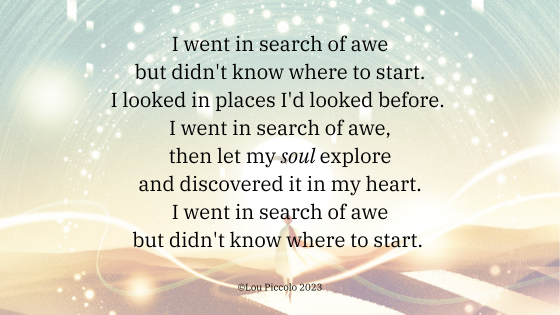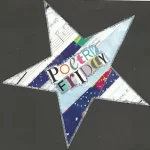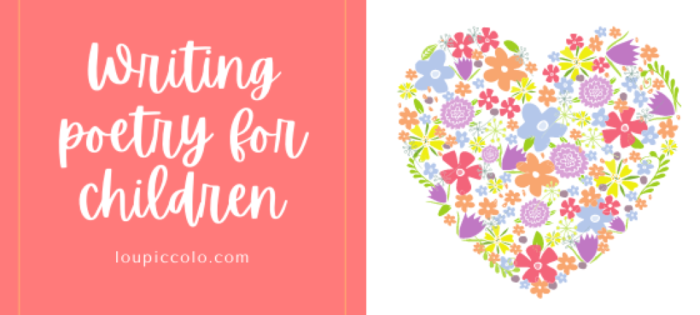Two weeks ago, a childhood friend sent me the link to an episode of a podcast called On Being by Krista Tippett about the science of awe. After thirty-eight years of friendship, she is well-equipped to know what interests me, and she wasn’t wrong about this topic. It thrilled me.
What is the science of awe?
Quite simply, it’s the study of awe. Awe can be defined as ‘a feeling of reverential respect mixed with fear or wonder’. Awe is what we feel when we gaze at a thundering waterfall, crane our necks to spot the top of a giant sequoia, experience a tropical storm of raging winds and driving rain, watch a child being born or listen to music that moves us.
Like me, you may be wondering who studies awe and why. Once I’d listened to the podcast, I went looking for more information and quickly came to the conclusion that I’d missed my calling as an awe scientist. While I love my job, I admit to being jealous of Dacher Keltner who is the founding director of the Greater Good Science Center, a professor of psychology at the University of California, Berkeley, and an awe scientist.
In search of awe
At one point in the podcast, Keltner who was being interviewed, spoke about the positive psychological effects that awe has on a person. He mentioned the illness of his brother and how he felt he needed to ‘go in search of awe’ after his brother passed away. That sentence stuck in my mind and I wrote it down. Then, when National Poetry Month came around and I decided my project would be to Tame the Triolet, my brain kept serving it up to me.
Project Tame the Triolet
The triolet is a form of poetry I find fascinating in its clever transitions and engaging repetition, but it’s also one that’s frustrating to me as I can’t seem to master it. So, this year, I’ve challenged myself to writing one a week for National Poetry Month. I was so inspired by the science of awe that I used Keltner’s sentence from the podcast as subject matter. It was only once I’d finished the triolet, which took about five drafts and still isn’t quite where I want it to be, that I realised I may have gone off topic and attributed awe to something we find within ourselves, like joy.
Perhaps it can be both?

As an editor, reader, writer, but mostly as a human being, I feel that awe, joy and appreciation are all emotions we need more of in our books and lives. While our brains are biologically wired to look for danger, helping us to survive, this doesn’t do much for our mental health. A daily dose of awe, joy and appreciation can help combat the doom and gloom, but it isn’t something we’re simply going to stumble on! After all, would we even see it if we weren’t open to it? Like Keltner, we have to go out and look for it, which is easier than it sounds.
A quiet awe-walk in the woods, watching the sun set, or purposely thinking of a small list of things we appreciate will lift our mood and make us feel lighter and happier, and it all starts with heart-felt intention.
If you’re interested in reading more on the science of awe, here are some links:

Margaret is hosting Poetry Friday this week at Reflections on the Teche




Thank you for this awe-inspiring post! I think looking within ourselves is a good place to find awe, as it’s in the heart and soul where we tuck away all the wonders we appreciate. And thanks for the link to the podcast. I will certainly check it out!
Wonderfully put, Rose. I hope you enjoy the podcast, especially the part about the apes watching the waterfall. I’ll say no more…
I think most of our problems/unhappinesses (not to mention writer’s block!) stem from being disconnected from awe… thanks for this lovely reminder.
I could not agree more, Irene. Sometimes it’s not a complex collection of reasons, but a simple and straightforward one.
I just picked up his book AWE two weeks ago at an indie bookstore. I’m reading it now while on vacation. After I bought the book, I listened to the podcast episode on ON BEING. I thought it was the perfect read since my word of the year is NOTICE.
And mine is appreciation! And what a coincidence that you’re reading both the book and my blog post. I enjoy synchronicity like that. I ordered the book and I’m eagerly waiting for it to get here.
I love how you took that line for a walk and ended up in your own heart. We do need more awe in our lives. Thanks for joining the roundup today.
Thank YOU Margaret! And yes, we do need more of awe.
IMO, it can be both – because YOU are the one who is experiencing awe – by being open to what the universe is showing you. (Mindfulness and awe seem to go together.)
Yes, agreed! That’s the way I see it too.
I enjoyed your ‘nudge’ for finding awe, most especially within ourselves. We so often look outward & neglect an inward look, “let my soul explore”.
True! So often, the answers, the solutions, the relief are right here, riding shotgun.
The search of awe seems a necessary task lately. A level of awareness and understanding maybe. Gratitude comes to mind, how the feeling of it seems incompatible with anger. Awe seems like that. Your poem is lovely, encouraging us to actively think of and look for awe outside or out, something we don’t usually consciously do.
Thank you Janice! And yes, you can’t be angry when you’re feeling gratitude or joy or awe. While it’s not a good idea to push away negative feelings we don’t want to feel, we can always look for something that can lift our mood at the same time so that this shift happens organically.
I agree that we need to be more open to and aware of awe. Sometimes it comes and goes in brief moments like the Carolina Wren song from the bird feeder just now.
It makes me think of something I always used to say to my sons whenever we visited a new European city – look up! And we always saw something above eye level that was worth it. So yes, awareness is important.
Enjoyed this thought provoking post. I agree that heart-felt intention and not overlooking the small things in life are crucial when it comes to awe. I also like that awe is subjective; we all find it in different places for different reasons.
Yes, it’s a personal thing on an individual level, but a shared human experience.
I love OnBeing! I listened to that podcast, too. My MA in Theology grew out of 25 years of “listening to God with children.” What they taught me (the children), is that children as young as 3 have a natural capacity for awe and wonder – if we give them time and sacred space in which to experience it. And they find it in the simplest places. And you know when they’ve found it because -consistently- they respond with JOY!
In the book I mentioned on my post, I think there’s something about children and awe which I’m eager to read about. That said, I think all adults have noticed the joy and awe and general amazement that young children experience all the time. I suppose we could say it’s because they are seeing things for the first time, but I like to think that it’s because they don’t filter the experience.
The circulating, meditative form of the triolet is a great one for sitting and being in the presence of the awe-inspiring, I think. Wishing you fulfillment in trying to tame it, Lou!
Thank you Heidi. My project for this poetry month is to write one a week, so I’m now trying to tame the second one. It is proving to be challenging…
I loved the line: “I looked in places I looked before.” Isn’t it funny how we can look at something we’ve seen a million times differently if we just look with a bit more intention?
I’m always inspired by the “On Being” podcast. This week Tippett talked with Barbara Brown Taylor. I got all caught up in the conversation around “reverence.”
Thanks for sharing the triolet. I’m going to have to play with that one a bit.
Yes, I think we’re all guilty of that. Enjoy playing with the triolet!
Awe and joy are wonderful feelings, tingling sensations that spread through us, and sometimes right in front of us. Thanks for your lovely post on awe Lou, and your sparkling-explore poem!
Absolutely, they really are lovely emotions, and so much better than regret, anger, disappointment and grief.